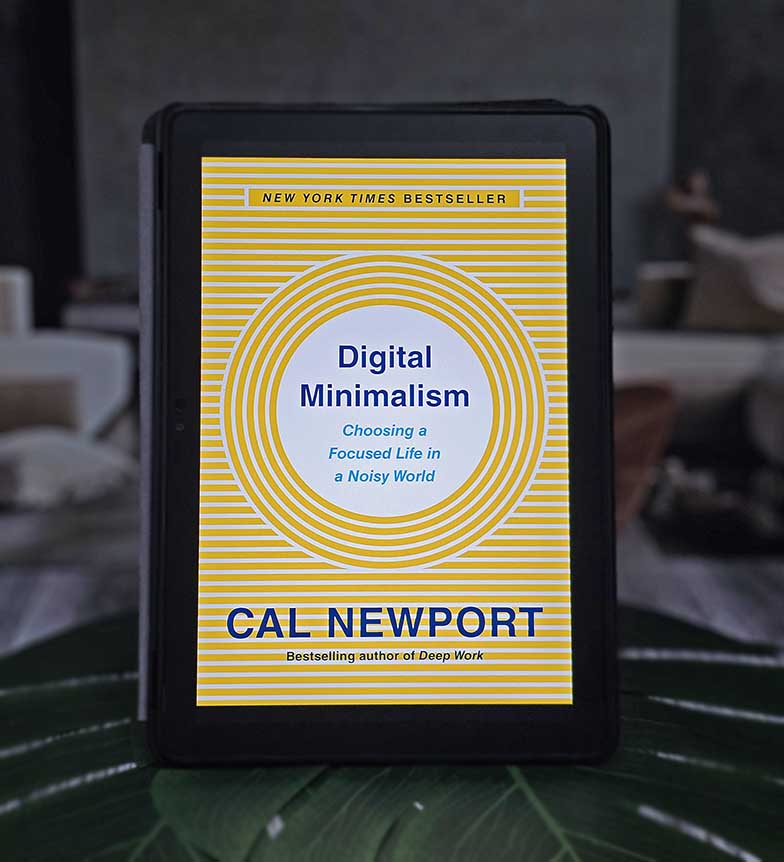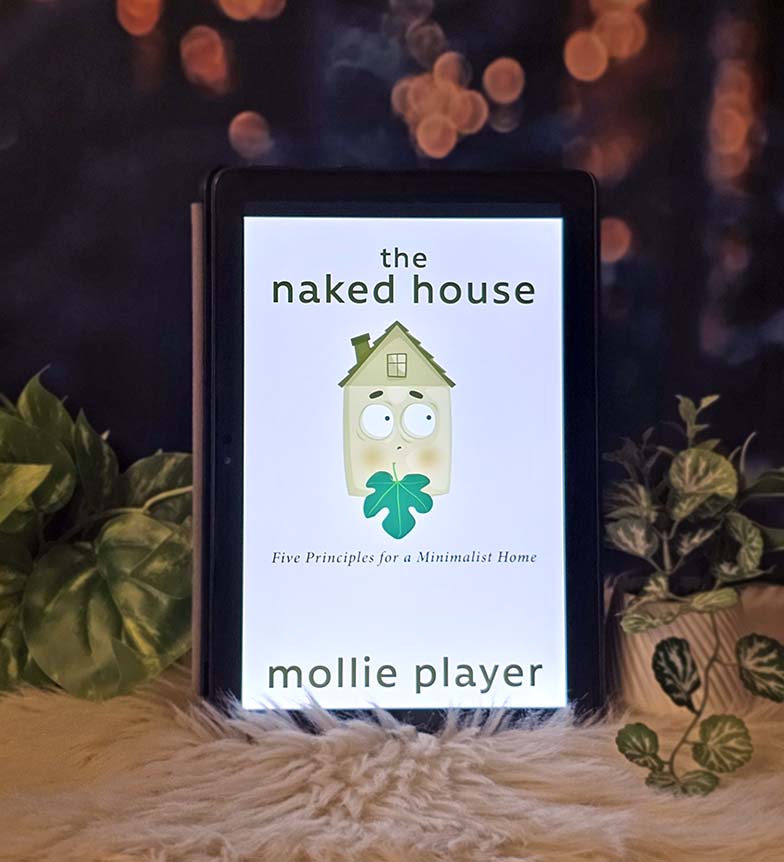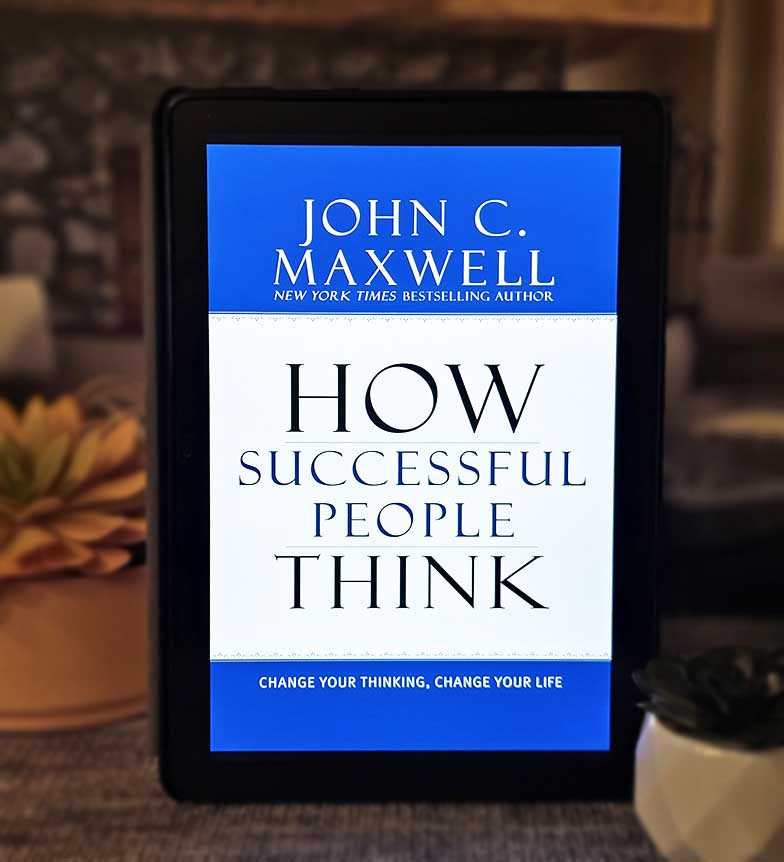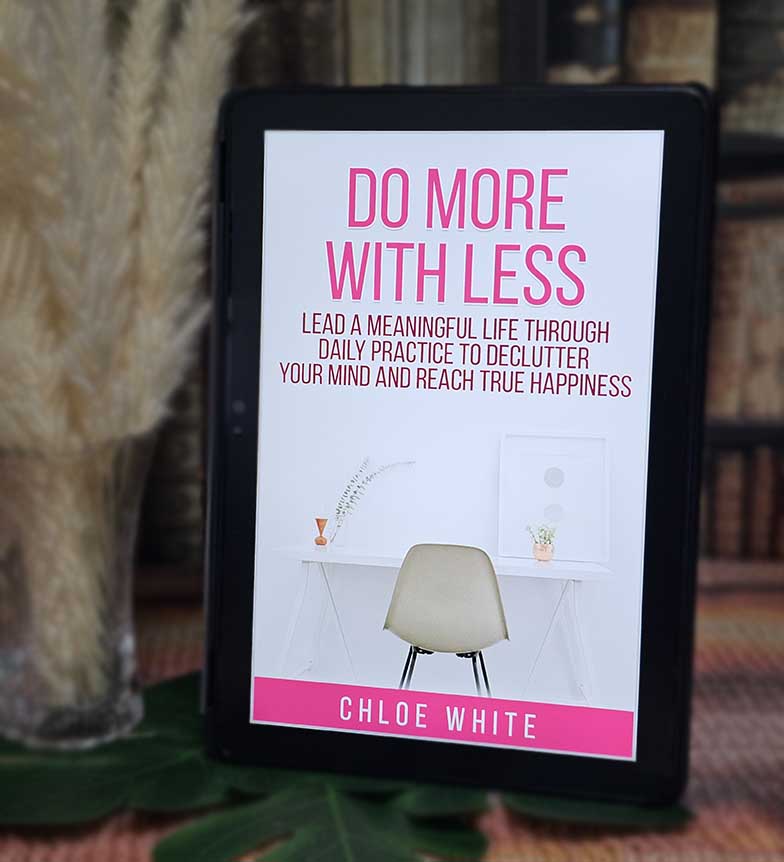
Digital Minimalism
by Cal Newport
A compelling philosophy for technology use in the modern age, arguing for a minimalist approach to digital tools. Cal Newport makes the case for being highly intentional about which technologies you allow into your life and how you use them.
Spoiler Warning
This review may contain spoilers. Read at your own discretion if you haven't finished the book yet.
The Most Important Book About Technology You'll Read
Cal Newport's Digital Minimalism is a rare thing: a book about technology that doesn't promise hacks or productivity tricks but instead offers a coherent philosophy for how to live in a world designed to colonize your attention. This isn't about using your phone more efficiently; it's about fundamentally rethinking your relationship with digital tools and reclaiming your autonomy from systems engineered to be addictive.
Reading this book in 2020, as the world locked down and everyone's screen time skyrocketed, it felt almost prophetic. Newport wrote it before the pandemic, but his arguments about the cost of constant connectivity, the importance of solitude, and the need for high-quality leisure became even more urgent when digital interactions became not just convenient but mandatory.
This is a five-star book because it changed how I think about technology, gave me actionable practices that actually work, and articulated a problem I'd been experiencing but couldn't quite name. Newport doesn't just diagnose the disease of digital distraction—he offers a cure that's both radical and eminently practical.
The Philosophy: Minimalism Meets Technology
The core insight of digital minimalism is deceptively simple: you should be highly selective about which technologies you allow into your life, optimize how you use the ones you keep, and derive deep satisfaction from this intentionality. It's minimalism applied to the digital realm, but unlike decluttering your closet, this is about reclaiming your attention, your time, and ultimately your autonomy.
Newport distinguishes this approach from the common "digital detox" model. A detox is a temporary break followed by a return to old habits. Digital minimalism is a permanent philosophy, a set of values and principles that guide all your technology decisions. It's not about rejecting technology wholesale—Newport uses email, writes a blog, has a smartphone—but about being fiercely intentional about how and why you use each tool.
The philosophy rests on recognizing that the "a little bit of everything" approach to digital tools—keeping every app that provides some marginal value—actually subtracts from your life. Each tool has costs (attention, time, cognitive load, opportunity cost) that aren't immediately obvious but compound. Digital minimalism says the cost of clutter is too high, and only tools that provide substantial value aligned with your core values are worth keeping.
The Problem: Addictive Design
One of the book's strongest sections is Newport's explanation of how modern digital tools are engineered to be addictive. These aren't neutral technologies; they're products designed by some of the smartest people in the world to capture and hold your attention because attention equals profit.
Newport explains the mechanism: intermittent positive reinforcement (you never know when the next like or interesting post will appear), the social approval indicator (likes, hearts, retweets), and the constant availability of novelty. These features aren't bugs; they're the business model. Companies have discovered that maximizing engagement maximizes profit, and they've optimized every aspect of their products to achieve that engagement.
The insight is uncomfortable: we like to think we're in control of our technology use, but we're actually competing against teams of engineers and psychologists whose job is to make their products irresistible. Willpower alone isn't enough when the product is designed to circumvent willpower. You need a different approach—a philosophy that gives you principles to fall back on when the pull of the screen is strong.
The Solution: The Digital Declutter
The practical core of the book is the 30-day digital declutter. This is more than a detox; it's a complete reset of your relationship with technology. The process:
-
Take a 30-day break from optional technologies. Note "optional"—you define what's optional based on your life circumstances. Work email might not be optional, but social media probably is.
-
During the break, actively explore and rediscover activities and behaviors that you find satisfying and meaningful. This is crucial—you're not just removing technology; you're filling the gap with better alternatives.
-
At the end of the 30 days, reintroduce technology starting from a blank slate. For each tool, ask: Does this directly support something I deeply value? How am I going to use it to maximize this value and minimize harms?
The genius of this process is that it inverts the question. Instead of asking "Why would I give this up?", you're asking "Why would I bring this back?" It shifts the burden of proof. A tool has to earn its place in your life by providing substantial value aligned with your values, not just some marginal convenience.
Newport shares case studies of people who went through this process, and the results are striking. Many people who thought they needed to be on social media for professional reasons discovered they didn't. Others found that they enjoyed specific aspects of certain tools but could get that value in more controlled ways. Almost everyone reported feeling better—less anxious, more focused, more satisfied with their leisure time.
Solitude Deprivation
One of the book's most powerful concepts is "solitude deprivation"—the state of going too long without time alone with your thoughts, free from input from other minds. Newport argues this is a modern epidemic, and it's causing genuine psychological harm.
The problem isn't that we're physically alone too little (though that may also be true). It's that we're never truly alone with our thoughts. The moment we have a spare second—waiting in line, sitting on the bus, walking between places—we pull out our phones and fill that gap with input from other people's minds: social media feeds, text conversations, podcasts, news.
Solitude, Newport argues, is essential for mental health. It's where we process experiences, come to terms with emotions, work through problems, and develop self-knowledge. When we eliminate all solitude from our lives, we lose access to these crucial cognitive processes. The result is anxiety, lack of self-awareness, inability to be comfortable with ourselves, and a constant need for external input to regulate our emotional state.
The practices Newport suggests for reclaiming solitude are simple but radical in their implications: take walks without your phone, drive without podcasts or music sometimes, write letters to yourself. The goal is to regularly experience extended periods where you're alone with your thoughts, where you can't immediately escape discomfort or boredom by reaching for a device.
Reclaiming Conversation
Another key section argues for "conversation-centric communication"—the idea that real conversation (face-to-face or voice-to-voice) is fundamentally different from and more valuable than text-based communication. Newport marshals evidence that text-based interaction, while providing some value, doesn't actually maintain relationships the way conversation does.
This doesn't mean texts, messages, or social media comments are worthless—but they should serve conversation, not replace it. Use texts to coordinate meeting up, not as a substitute for meeting up. Use social media to stay loosely connected between real interactions, not as the primary mode of interaction.
The practical implementation is to hold "office hours"—regular times when you're available for conversation, either in person or by phone. This might feel strange at first (who calls anymore?), but Newport argues it's actually more efficient and more satisfying than the constant low-level ping of text conversations that never really end.
The Importance of High-Quality Leisure
Perhaps the most culturally relevant section is Newport's argument about leisure. He contends that humans need demanding, skill-based leisure activities to flourish. We're wired to create and produce, not just consume. The problem with defaulting to screens for leisure is that it's entirely passive consumption—you're not building anything, developing any skills, or engaging deeply with anything.
Newport advocates for leisure activities that are demanding enough to require focus and skill development: woodworking, playing musical instruments, fixing things, athletics, crafts, art. These activities provide genuine satisfaction in ways that scrolling feeds never can because they involve creation, progression, and tangible results.
He also emphasizes the importance of in-person community—joining groups, clubs, or organizations where you interact with real humans around shared interests. This is the kind of social connection that actually sustains us, as opposed to the simulacrum of connection provided by digital interaction.
The section on leisure also tackles the "but I don't have time" objection. Newport's response is that you do have time—you're just spending it on low-value digital activities. Reclaim the hours spent on social media and you'll find you have plenty of time for meaningful hobbies.
Practical Strategies That Actually Work
Beyond the big-picture philosophy, Newport provides concrete practices:
-
Leave your phone at home sometimes. Start small—just during a walk around the block—and build up. The point is to break the assumption that you need to be reachable at all times.
-
Consolidate texting. Set specific times to check and respond to messages rather than responding immediately. Train people that you're not always available.
-
Dumb down your smartphone. Remove social media apps, email, news, and browsers. Keep only tools that provide clear value (maps, music, camera).
-
Use social media like a professional tool. If it provides value for your work or specific important goals, keep it but with strict protocols: only check during designated times, never on your phone, specific time limits.
-
Delete social media from your phone but keep the accounts. You can still access them from a computer during designated times, but removing the easy access dramatically reduces compulsive checking.
-
Schedule your low-quality leisure. If you want to watch Netflix or browse the internet, that's fine—but schedule it rather than defaulting to it. This makes it a conscious choice rather than a reflex.
Why This Deserves Five Stars
Digital Minimalism earns its five stars by being genuinely transformative. This isn't self-help fluff or productivity porn. This is a serious book making a serious argument about how we should live in the 21st century, backed by research and real-world examples.
The philosophy is coherent and compelling. The practical advice is actionable and actually works. The writing is clear and respectful of the reader's intelligence—Newport doesn't waste words or pad the book with filler. Every chapter delivers substantial value.
Most importantly, the book changes how you see technology. After reading it, you can't unsee the ways your attention is being manipulated. You can't default back to mindless scrolling without noticing what you're doing and why. Newport gives you both the motivation to change and the tools to actually do it.
Criticisms and Limitations
If there's a weakness, it's that Newport sometimes underestimates how embedded certain technologies are in professional and social life. His suggestion to simply quit social media is easier for a tenured computer science professor than for someone in marketing, media, or other fields where online presence is genuinely professionally necessary.
Additionally, the book is written from a position of privilege—having a stable career, supportive community, and resources that make the digital declutter feasible. For people using technology to build careers, stay connected to distant family, or access communities they can't find locally, the calculus is different.
The solutions sometimes feel a bit one-size-fits-all. What works for Newport (an academic who's always been skeptical of social media) might not work for everyone. A bit more flexibility and acknowledgment of different contexts would strengthen the argument.
Cultural Impact and Timeliness
Reading this in 2020, during a pandemic when everyone's screen time exploded, made the book's arguments even more urgent. When the only way to maintain connection is digital, when work happens entirely online, when you can't leave your house—how do you maintain solitude, real conversation, and meaningful leisure?
Newport's framework helps even in these extreme circumstances. The principles still apply: be intentional about which tools you use and how, protect time for solitude and focused work, prioritize real conversation over text, pursue demanding leisure when possible. The specifics might shift, but the philosophy holds.
The book also feels prescient about the mental health crisis linked to social media. As more data emerges about the relationship between heavy social media use and anxiety, depression, and other issues, Newport's argument that these tools are actually subtracting from our lives rather than adding to them becomes harder to dismiss.
Final Thoughts
Digital Minimalism is essential reading for anyone feeling overwhelmed by technology, struggling with focus, or sensing that their relationship with their devices isn't healthy but unsure how to change it. Newport provides both the philosophical framework and the practical tools to take back control.
This is a book that will make you uncomfortable—it challenges assumptions about how necessary certain technologies are, questions whether you're really in control of your digital life, and demands that you think seriously about what you value and whether your technology use aligns with those values.
But the discomfort is worth it. The digital minimalist life Newport describes—focused, intentional, rich with real conversation and meaningful leisure, free from the constant pull of notifications and feeds—is genuinely more satisfying than the alternative. It's not easy to get there, but the book gives you the map.
If you take the ideas seriously and do the 30-day declutter, this book will change your life. Even if you don't go all the way, it will change how you think about technology and give you tools to be more intentional. In a world increasingly colonized by engineered addiction, that's invaluable.
Absolutely essential. Read it, do the declutter, and reclaim your attention. You won't regret it.
My Notes & Takeaways
Core Principles & Key Ideas
Digital Minimalism Defined:
"Digital minimalism is a philosophy of technology use in which you focus your online time on a small number of carefully selected and optimized activities that strongly support things you value, and then happily miss out on everything else."
The Three Principles:
-
Clutter is costly: Keeping around a bunch of small tools, even if each provides a little bit of value, has costs that add up.
-
Optimization is important: Deciding which technology to use is only the first step. To truly extract value, you must think carefully about how you use it.
-
Intentionality is satisfying: Digital minimalists derive significant satisfaction from their general commitment to being highly intentional about how they engage with new technologies.
On Solitude:
"Solitude is the state in which you're alone with your own thoughts, free from input from other minds."
"Regular doses of solitude are crucial for the functioning of your brain and your well-being. The constant presence of other people's thoughts prevents the valuable clarity and self-knowledge that emerges from solitude."
On Conversation-Centric Communication:
"Conversation is the only form of interaction that in some sense counts toward maintaining a relationship."
"Text-based messaging should be used to coordinate real conversation, not replace it."
On Leisure:
"High-quality leisure is crucial for a good life. The digital minimalist sees new technologies as tools to be used to support things they deeply value—not as sources of value themselves."
"Humans are not wired to be passive consumers. We're wired to create, to produce, to build things with our hands."
The 30-Day Digital Declutter Process:
- Define your technology rules for the 30 days
- Take a 30-day break from optional technologies
- Explore and rediscover activities and behaviors you find satisfying and meaningful
- Reintroduce technology, starting from a blank slate, asking: Does this technology directly support something I deeply value?
Key Practices:
- Leave your phone at home occasionally
- Take long walks without devices
- Write letters to yourself
- Schedule regular "office hours" for casual conversation
- Join or create something worth joining (clubs, groups, communities)
- Fix, build, or make things with your hands
- Pursue demanding leisure activities that require skill development
You Might Also Like

The Naked House
by Mollie Player
Mollie Player's memoir-meets-guide about her family's experiment living with minimal possessions for a year. Personal narrative about discovering what's truly essential through radical decluttering. Engaging storytelling but limited practical application.

How Successful People Think
by John C. Maxwell
John C. Maxwell explores eleven types of thinking that successful people use, offering strategies for developing better mental habits and decision-making skills.

Do More with Less
by Chloe White
Chloe White's minimalism guide about simplifying life to achieve more with fewer possessions and commitments. Practical advice on decluttering, time management, and intentional living. Familiar minimalism territory without much innovation.